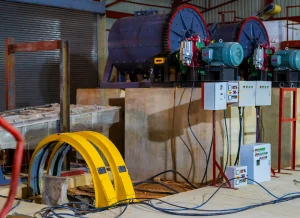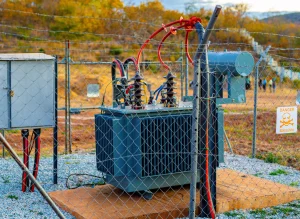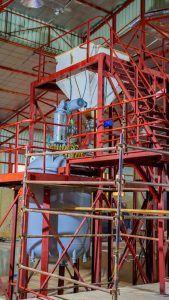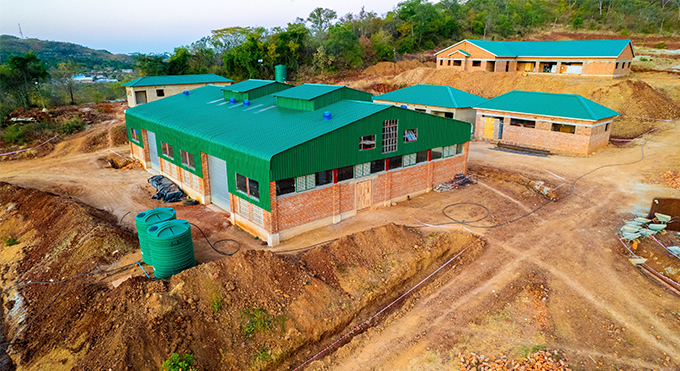Verify Engineering (VE), a wholly owned government entity whose core business focus is industrialisation through heritage-based innovations, has installed a silicon nanoparticle production plant in the Midlands Province, adding to their innovative and impressive line of products that initially covered oxygen gas in their formative years.

Plant capacity and operations:
The Zvishavane town-based plant is a 20x30m plant shed with auxiliary buildings and structures on an area of more than 2 hectares. Its projected production capacity is 3 tonnes per day. Installations, currently at approximately 90% completion, commenced in March 2024. The official opening will take place between the end of June and early July this year.
The plant incorporates sustainable technologies, in keeping with global green economy trends. As a result, the processes involved at the plant are based on environmentally conscious designs.
It will use raw materials from a dump or asbestos waste site. This material is in abundance in the Zvishavane area, historically one of the world’s sixth-largest asbestos-producing mines. Zvishavane was chosen for its close proximity to raw materials, utilities, and markets.

“What this means is that the bulk of the materials to be used in the manufacturing process will be sourced locally. Only acid, the other component of the materials, will be imported,” said Armand Matsangaise, the process design engineer.
Silicon nanoparticles are an additive to tar for creating tar for road surfacing and are more durable and resistant to thermal bleeding and cracking. The silicon nanoparticles will primarily be sold to the local market, but there is capacity and focus to serve the region.
With Zimbabwe’s road infrastructure currently undergoing a massive renovation boom, especially in the major cities such as Harare, the plant has come at an appropriate time.
“New technologies will be implemented at the plant, simultaneously helping the plant address environmental sustainability concerns. These include the latest ion exchange system, effluent treatment, lean and six-sigma principles, as well as the latest instrumentation on the reactor,” explained Matsangaise.
Impact:
As expected and consistent with such new infrastructural developments, VE has created significant direct jobs at the plant, with more than 50 skilled and non-skilled staff involved in the day-to-day running.
The number of beneficiaries through livelihood-enhancing opportunities increases when factoring
in the scores of people in downstream and spin-off activities.

Furthermore, the plant will benefit the Zvishavane community through the provision of indirect employment and an improved road network in and around the town.
Also, the use of asbestos dumps as raw materials for the plant will help reduce material that was posing an environmental disposal threat.
Through the establishment of the plant, VE plans to partner with locally based stakeholders, including mines, technical innovation hubs, the road construction industry, city councils, and more.
Potential exists for the plant to contribute to the growth of Zimbabwe’s manufacturing sector through the industrialization of the economy and supporting the road construction industry.
“The project aligns with Zimbabwe’s national development goals of industrialization, improved road infrastructure, and building an upper-middle-income economy by 2030.
One major contribution of the new plant to VE’s overall strategy is that we will leverage its potential to thrust the company as a frontrunner in providing engineering-based solutions to the nation’s challenges,” said Matsangaise.
He emphasised the importance of the plant, stating that it aligns with the Zimbabwean government’s industrialization goals, mainly the use of the latest technologies to manufacture a useful resource that substitutes imports of bitumen, a key product in tarring roads.
With collaborations playing a huge role in the implementation of projects, VE went with Midlands State University (MSU) for patenting the idea of the project.
The impact of the plant will be felt in contributing to the development of skilled labour in Zimbabwe’s manufacturing sector.
Skilled personnel that will be required include boilermakers, fitters and turners, electrical and instrumentation artisans, mechanical engineers, plant managers, chemists, quality analysts, R&D professionals, and others.
The future:
The completion of the plant is expected to further boost VE’s foothold in the southern African regional market.
In their long-term plans for the plant, after installations, Verify Engineering will focus, among other things, on plant maintenance. They will also look at the expansion of production or the introduction of new product lines in the future.
Text by Martin Chemhere | Images by Caast Media

